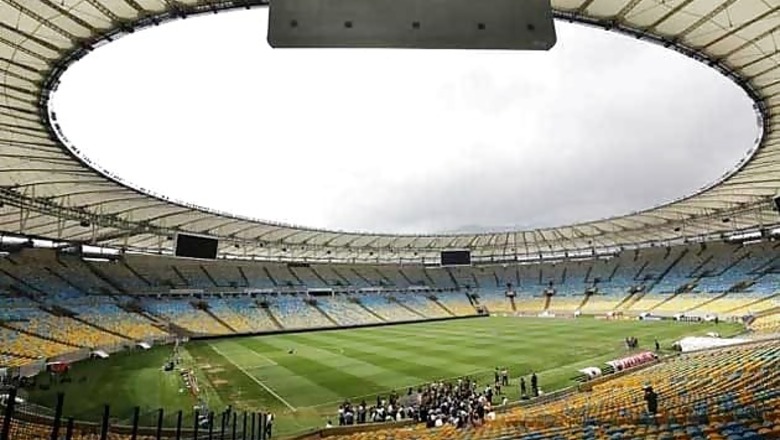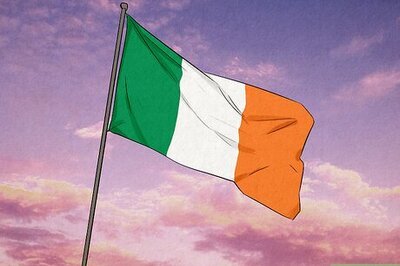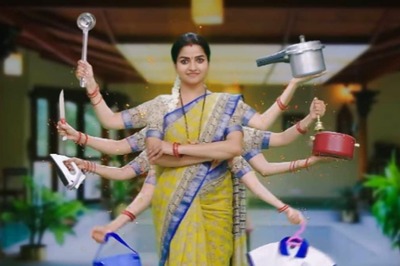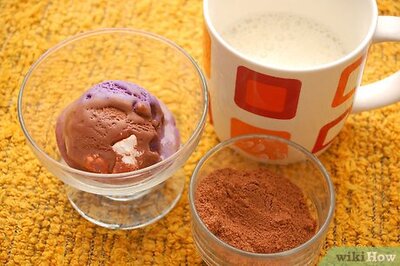
views
Bouake: As Brazil gears up to host the World Cup Final next month at the legendary Maracana stadium, the Ivory Coast city of Bouake has held its own homage to the beautiful game -- the Maracana Cup. The competition takes its name from the mythical Rio de Janeiro ground, venue for the 1950 World Cup final, which Brazil lost to Uruguay in front of 200,000 tearful fans.
A specialised form of Ivorian football, Maracana is played on a small pitch between two sides of six, without goalkeepers. Goals are only scored from inside the box, with the focus on technique and audacity, similar to its role model, the Brazilian "futebol".
Maracana's inspiration comes straight from Brazil where, in 1973, 20 Ivorian students were given the chance to spend a month's football pilgrimage by then president Felix Houphouet-Boigny. The "father of the Ivorian nation" -- as Houphouet-Boigny was known -- hoped the trip would open the eyes of his young compatriots. Instead, it started a lifelong footballing infatuation.
The Brazilian national team, known as La Selecao, had won three of the previous four World Cups in 1958, 1962 and 1970. Its star players, Pele, Jairzinho and Gerson became sporting icons, and the Maracana was a vital stop for the Ivorian students.
"When they returned, they immediately had the idea to borrow the name "Maracana" for their version of the sport, played on handball courts" at Cocody university, recalls Jean-Baptiste Kipre, who was part of a second group of Ivorian students to visit Brazil, in 1977.
Football was already played on small pitches throughout Ivory Coast, but the Maracana version would codify the rules "with an Ivorian flavour," said 57-year-old Kipre.
He remembers seeing children in Rio's poor favelas, playing with two bricks as goalposts during his tour. "This was how I learned to play football in my country, using a cloth or latex ball," he says.
Maracana started out as an "elite sport", played by a group of "dinosaurs", according to Charlemagne Bleu, president of the national governing body, Fimada.
Students on Cocody University's campus, in an affluent neighbourhood of the capital Abidjan, are often from well-off families and many former Maracana players occupy high civil or governmental positions today.
One such Maracana veteran is the current minister of energy and petroleum, Adama Toungara, according to Bleu.
Then there is the minister of water and forests, Mathie Babaud Darret, known as "Cerezo" in homage to the legendary Brazilian midfielder.
"I was a very good Maracana player, known throughout the country," Darret recalls. "I played everywhere. Even now, when I'm out working, I go to the colleges and I play."
Officials, who have to travel throughout the country on state business, are actively involved in spreading the sport throughout Ivory Coast.
This has helped Maracana and other forms of street football to gather 4.3 million players nationwide -- 12,000 of whom are officially licensed -- boasts Bleu, the police commissioner in his home state, proud of the "democratisation" of the beautiful game.
The icing on the cake is that Maracana is now exported to neighbouring countries as young people come from abroad to study in Ivory Coast.
A third Maracana African Cup of Nations will take place in September in Niger, with 12 nations competing.
Maracana also has a presence in North America and Europe, according to the Fimada president, who is confident the sport will spread to "five continents within five to 10 years". He hopes it will even have a future at the Olympic Games.
In Bouake on Sunday, Khorogo, a club from northern Ivory Coast came out 4-0 winners over MC 180, from Abidjan. All participants can now sit back and enjoy the main event, the World Cup, which starts in Sao Paolo on Thursday.

















Comments
0 comment